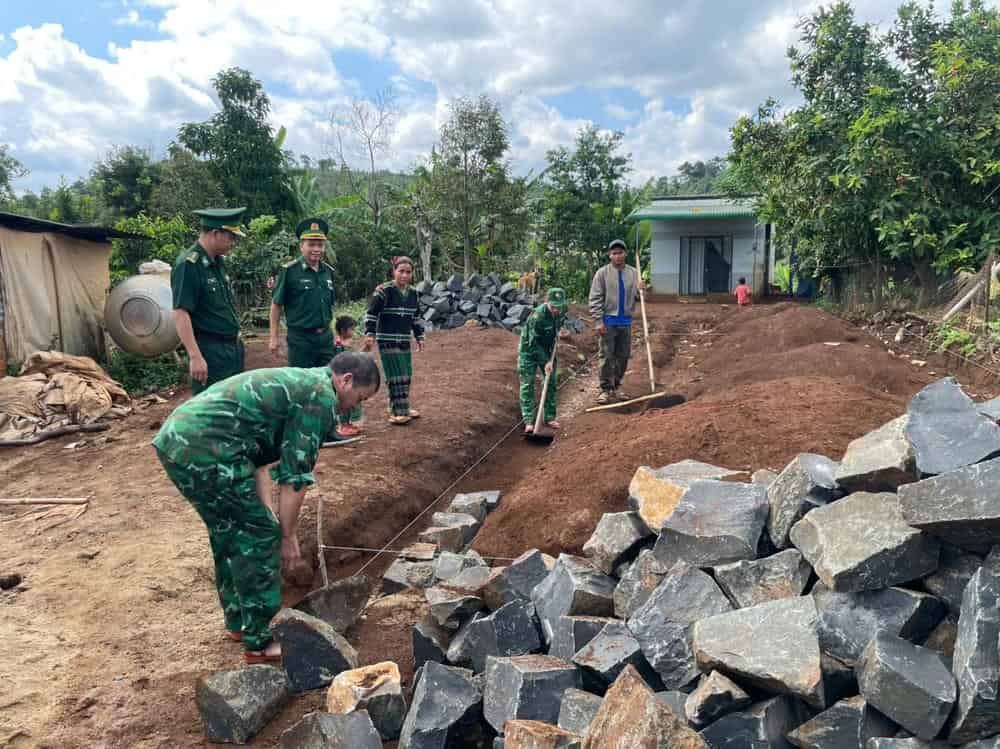On May 6, Thuan An Border Guard Station (Dak Nong Provincial Border Guard Command) coordinated with the authorities of Thuan An commune (Dak Mil district, Dak Nong province) to organize the groundbreaking ceremony for the construction of 2 houses for the family of Ms. H'Duong (Bu Dak province) and Mr. Yzen (Bu Sa Pa), a poor household with housing difficulties.
In addition to the support of 60 million VND from the budget of the Border Guard Command, the Dak Nong Provincial Fatherland Front Committee and the families also contributed an additional 100 million VND.
During the construction process, officers and soldiers of Thuan An Border Guard Station also supported working days and presented household items to families.

Lieutenant Colonel Ngo Ba Quyen, Head of Thuan An Border Guard Station, said: "Constructing houses for poor households and those in difficult circumstances is one of the annual activities of the unit. We have stepped up propaganda work about the significance of the emulation movement "Joining hands to eliminate temporary and dilapidated houses".
At the same time, the organizing unit launched a widespread movement, creating high consensus in the awareness of officers and soldiers. Since then, officers and soldiers have actively participated in the working day, contributing funds to join hands in carrying out the movement.
Thereby, demonstrating the traditional morality of "Remember the source of drinking water", " use gratitude", which is a source of encouragement and motivation for families to improve their housing, overcome difficulties, and stabilize their lives. At the same time, it contributes to strengthening the solidarity and close relationship between the army and people in the area where they are stationed.
